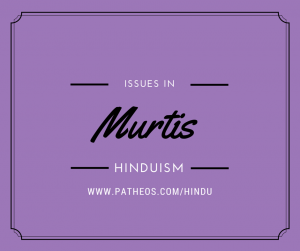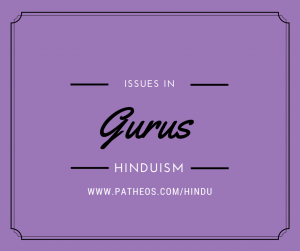Hinduism has a concept called gunas, which doesn’t directly translate into English, but which is generally a mode of being. There are three gunas. Sattva is goodness; the mode of being clear, calm, alert but not anxious. Sattvic is the way your energy feels if you’ve been eating healthy and meditating. Rajas is fiery energy; the mode of being competitive or aggressive. Rajasic is the energy that flows through the stadium at sporting events. Tamas is ignorance; the energy of not knowing what’s right or wrong and the dullness of not caring. Tamasic is the energy of being in a drunken stupor.
Everyone has experienced all three gunas. They effect you but don’t define you. All are needed at times; although sattva is “ideal” (and it literally translates as “truth-ness” or your energy in its truest state), you need rajas in order to get things done, especially in the corporate world. Tamas helps us cope when things are too intense — a doctor might put you into a medically-induced coma for a time in order to allow your body to heal without causing you distress. But tamas is also what gives birth to what we call “evil” (a word that doesn’t exist in Hinduism).
Humans have known for centuries that torture doesn’t work. Sure, it can get confessions. Just like those medieval confessions during the witch hunts, when people confessed to flying on brooms, kissing Satan’s rear, and engaging in orgies. There are court documents of all the bizarre stuff people confessed to during the witch hunts, and no one today would even believe that most of those things were possible. In other words, torture leads to confessions of things that not only aren’t true but often aren’t possible. It causes the kind of stress that will make a person say anything in an effort to make it stop. And we’ve known this for centuries. At least I thought we did.
The CIA, in the aftermath of 9/11, went on medieval witch hunts. Apparently the CIA stopped believing in the “self-evidence” of the fact that all humans are entitled to life, liberty, and the pursuit of happiness.
I realize that world leaders have to make tough choices. People in positions on power don’t get to live in an ideal world and choose only the most perfect options from all the lovely choices in front of them. In the Mahabharata, Yuddhistir goes to hell for a brief time and it’s explained that no one can rule a country without making any decisions that would earn them a stay in hell.
After 9/11, everyone knew that Osama Bin Laden would be killed when he was found. Although civilians aren’t authorized to kill, sometimes soldiers must do so. That’s a reality of war. The thing about the torture carried out by the CIA is that it was not even directed to Osama Bin Laden (who managed to actually suffer far less). If he’d been tortured, it would have been wrong, immoral, unethical. But people would at least be able to understand the impulse behind wanting to make him suffer. The people who were made to suffer were not him, and in some cases they were not guilty of anything at all.
Using techniques that don’t work on people who aren’t guilty is incomprehensible. The CIA knew that what they were doing was wrong, because they weren’t open about their actions. When you’re hiding in the dark, not telling anyone what you’re up to, you can be sure your behavior has taken a tamasic turn. You are as far away from the truth-ness of sattva as you can be. In the Bhagavad Gita, Krishna calls those who are “malicious, hateful, cruel and degraded” asuric. That is: demonic.
Of course, we all knew this already. No one needs to be told, “Torture is bad.” Our revulsion is inherent.
Why, then, did the CIA do things we all know in our hearts are wrong, which we know aren’t accurate ways to get factual information and to people who weren’t even responsible for the crimes?

Why is Fahd Gazy still being held in Guantanamo? He hasn’t been found guilty of anything and he’s been cleared for release since 2007. That was 7 years ago. He was 17 when he was sent to Guantanamo. He’s been there for 13 years. My younger son is 13; he was born only a few months before 9/11. I look at a son who is taller than most of the women in the family and realize that an innocent man has been in Guantanamo since my teen was small enough to wear in a sling. A man who was, himself, only four years older than 13 when he was incarcerated. Even people who don’t believe in karma believe in something like “you reap what you sow.” Tell me, when our country sows these things, what do we expect to reap?
What can be done? How can these wrongs be made right? How can the United States find its way out of the darkness of tamas and, if not reach the highest ideals of the Declaration of Independence and Constitution, at least actively strive rajasically toward them? I wish I had the answers, but I only have the questions.











